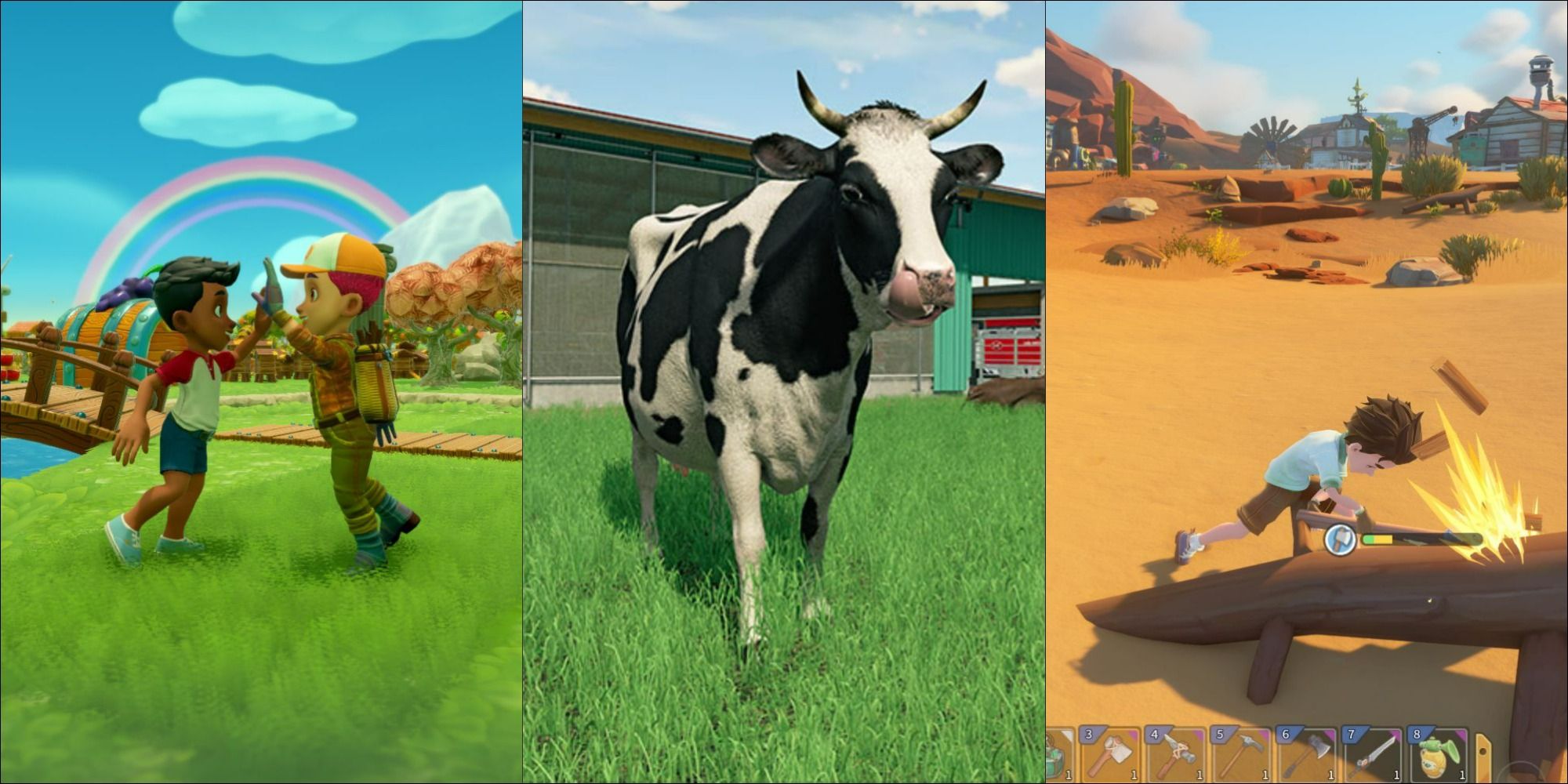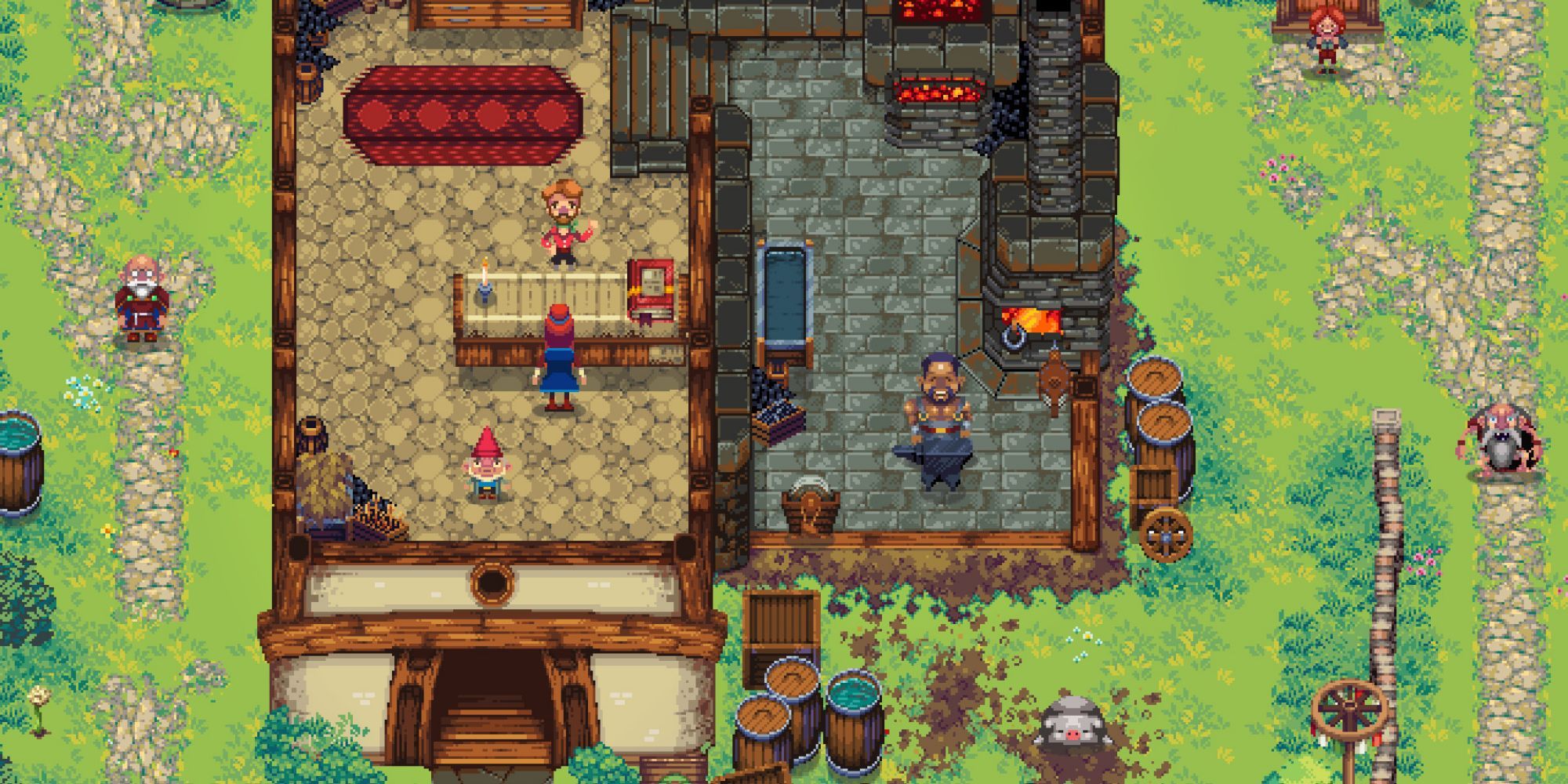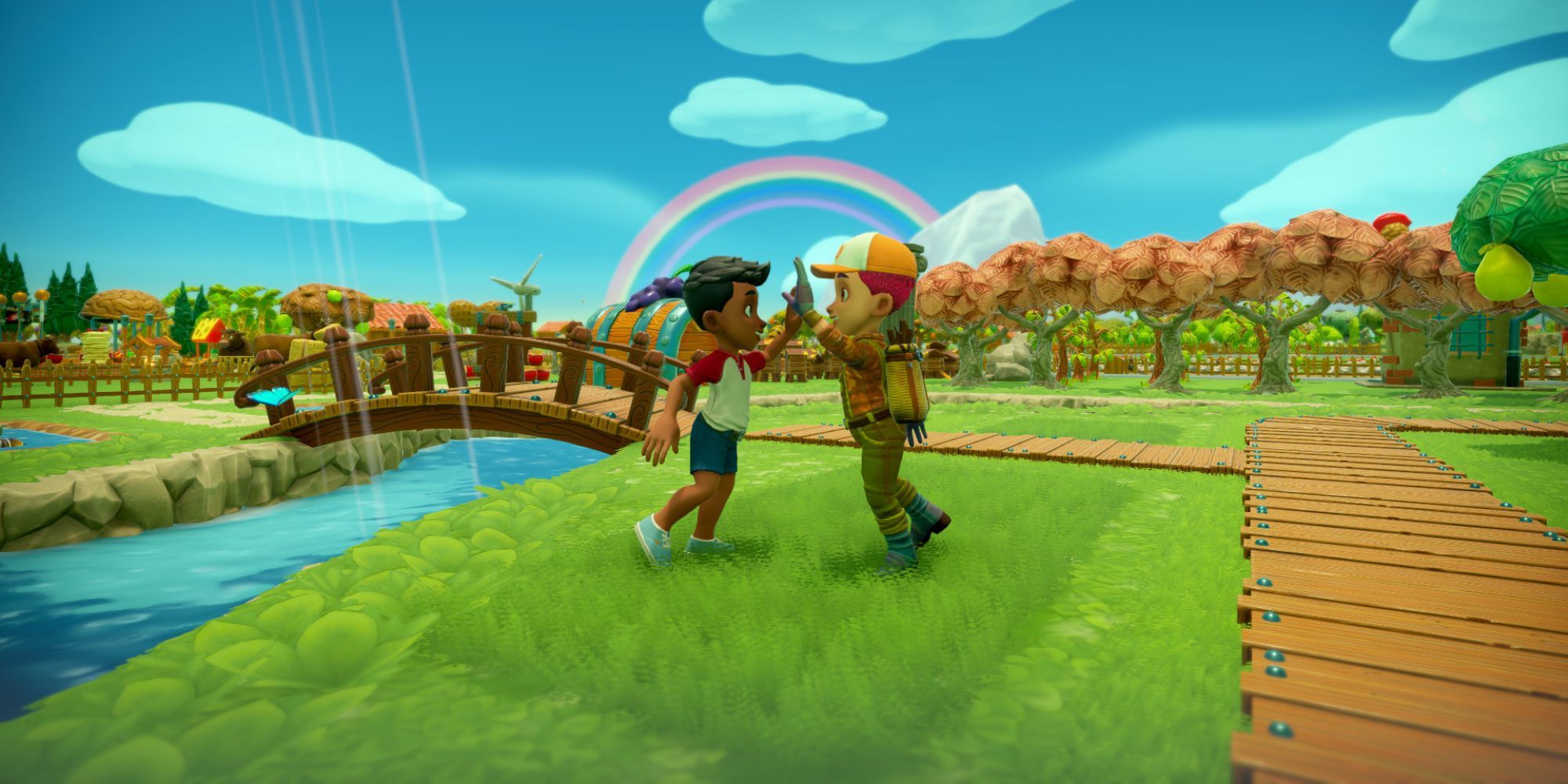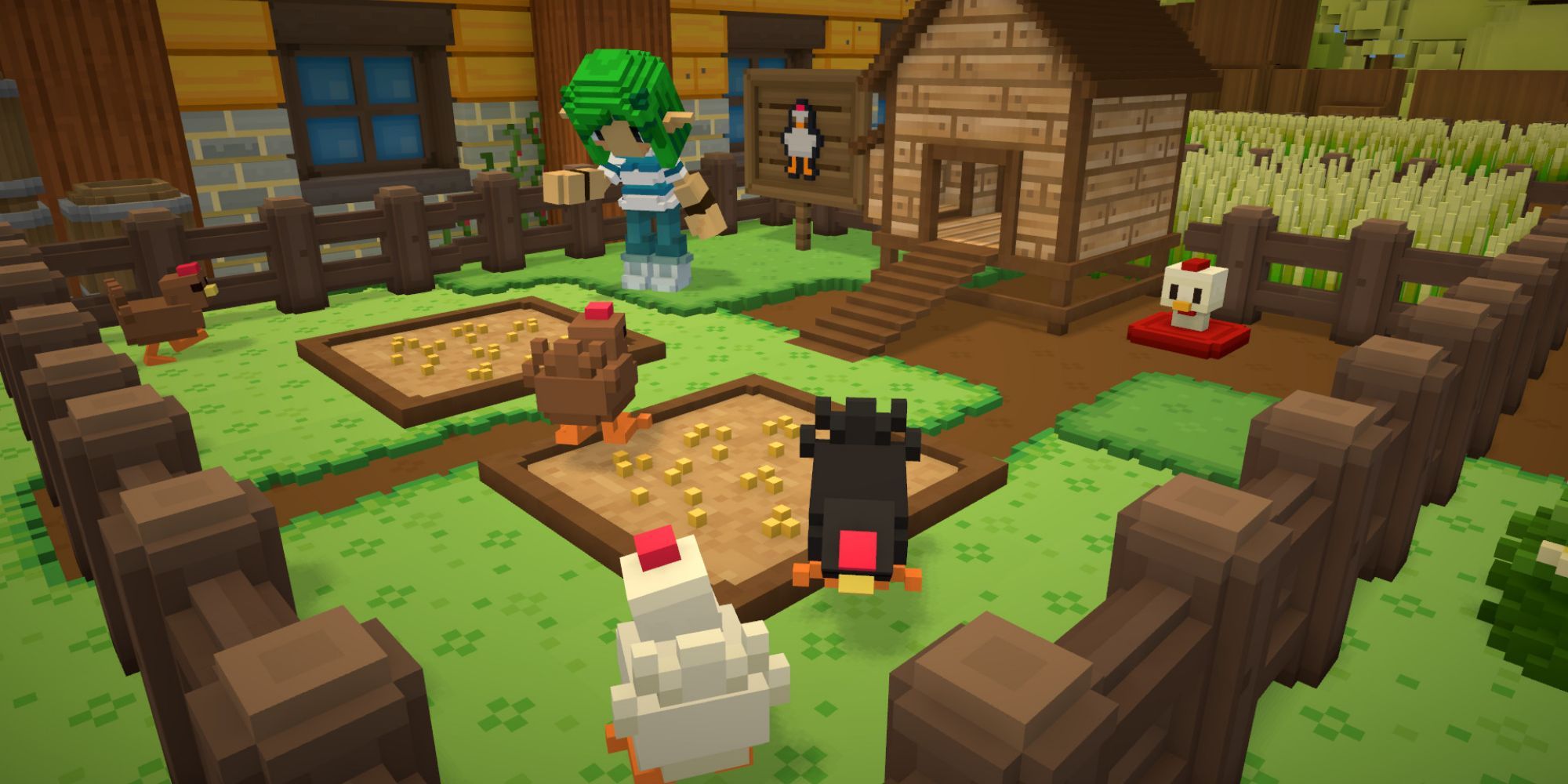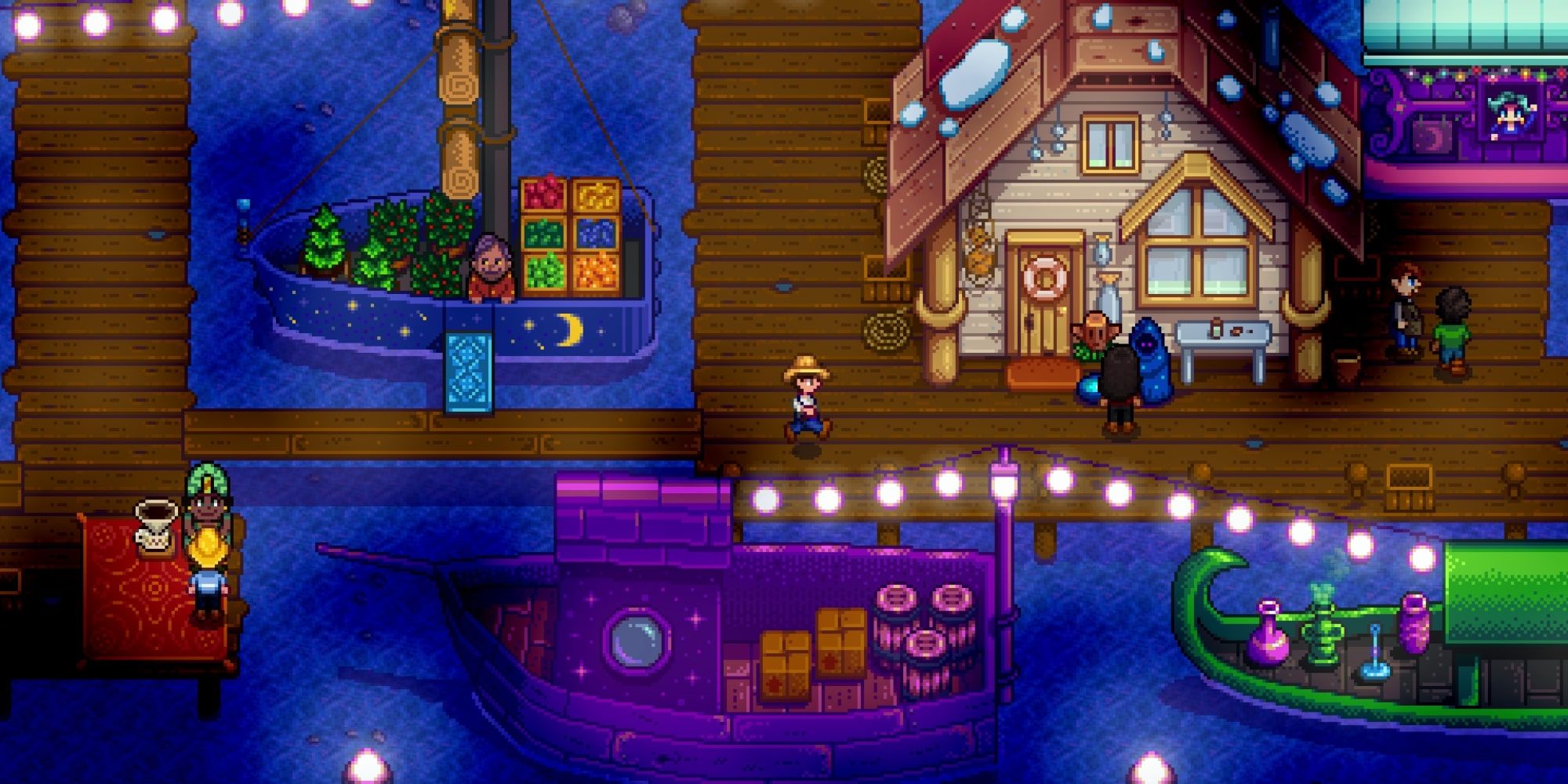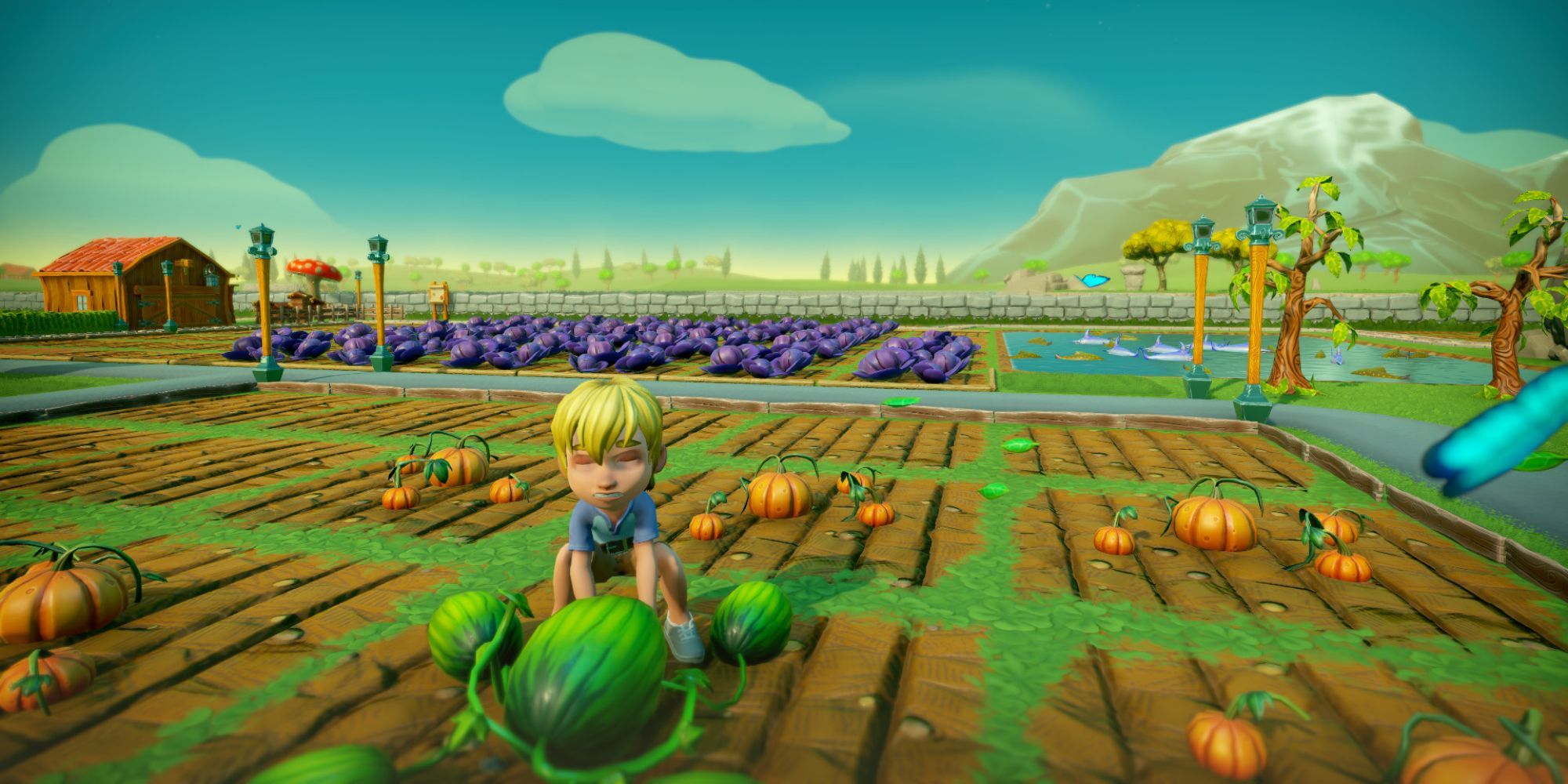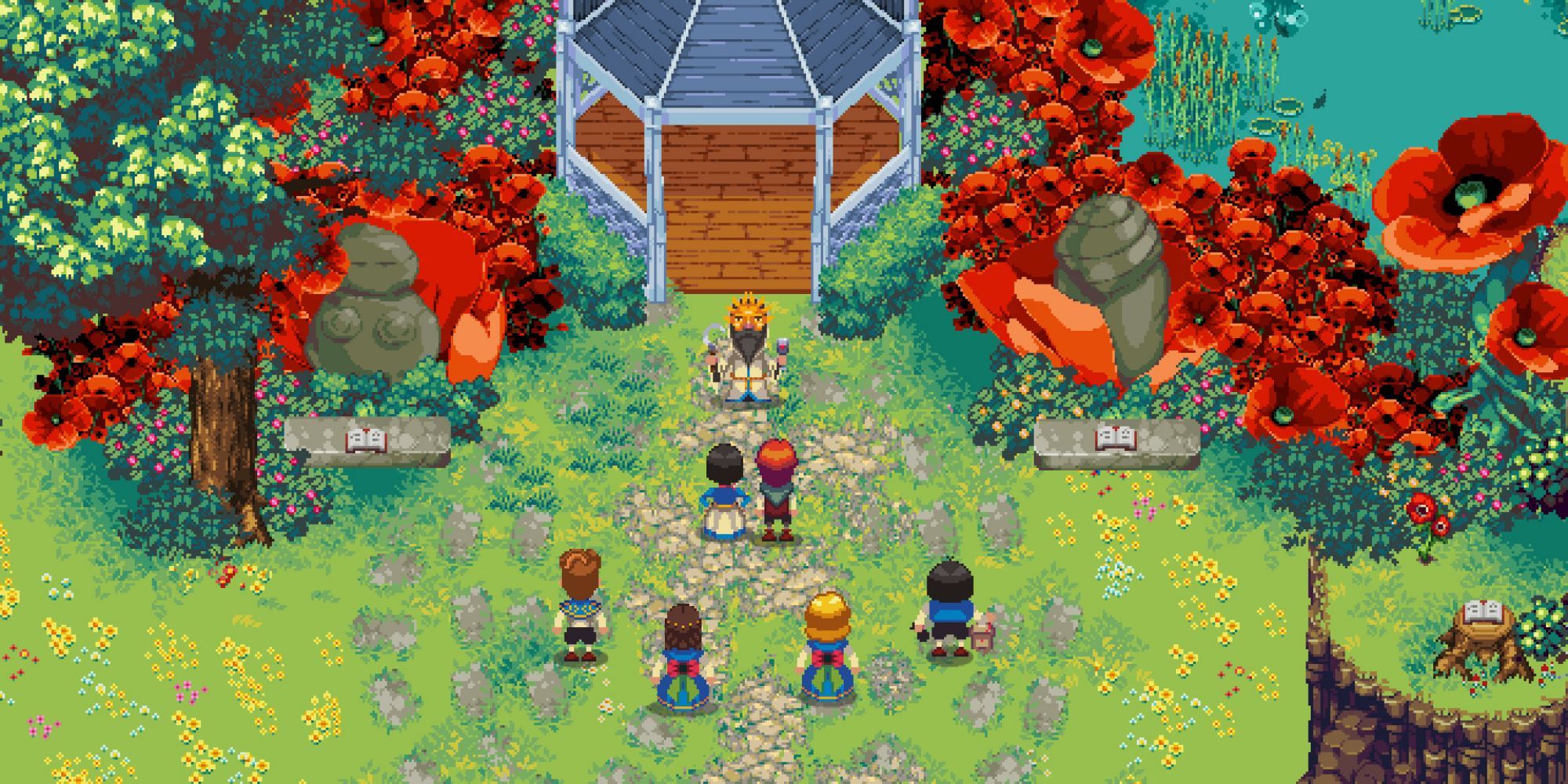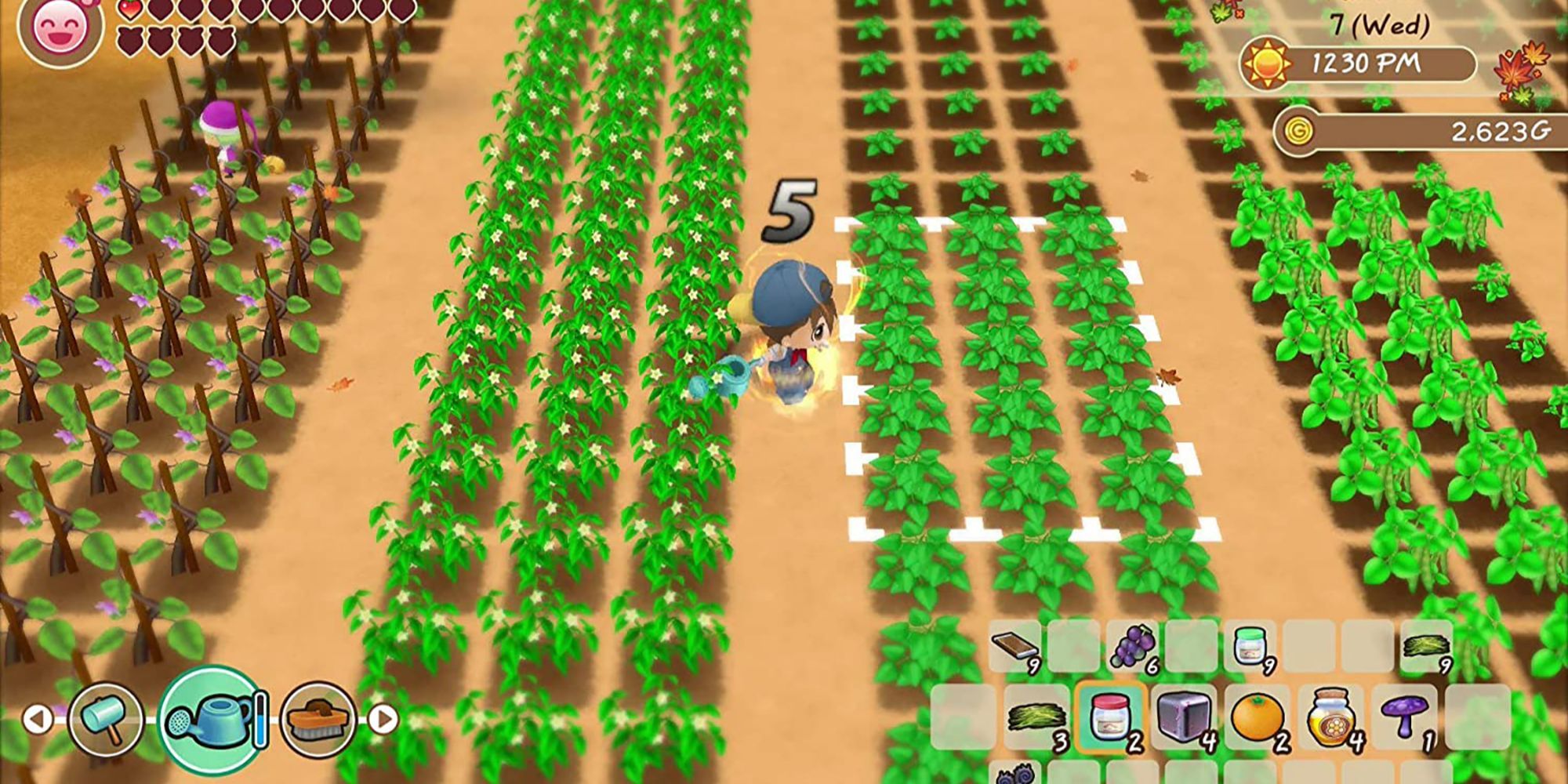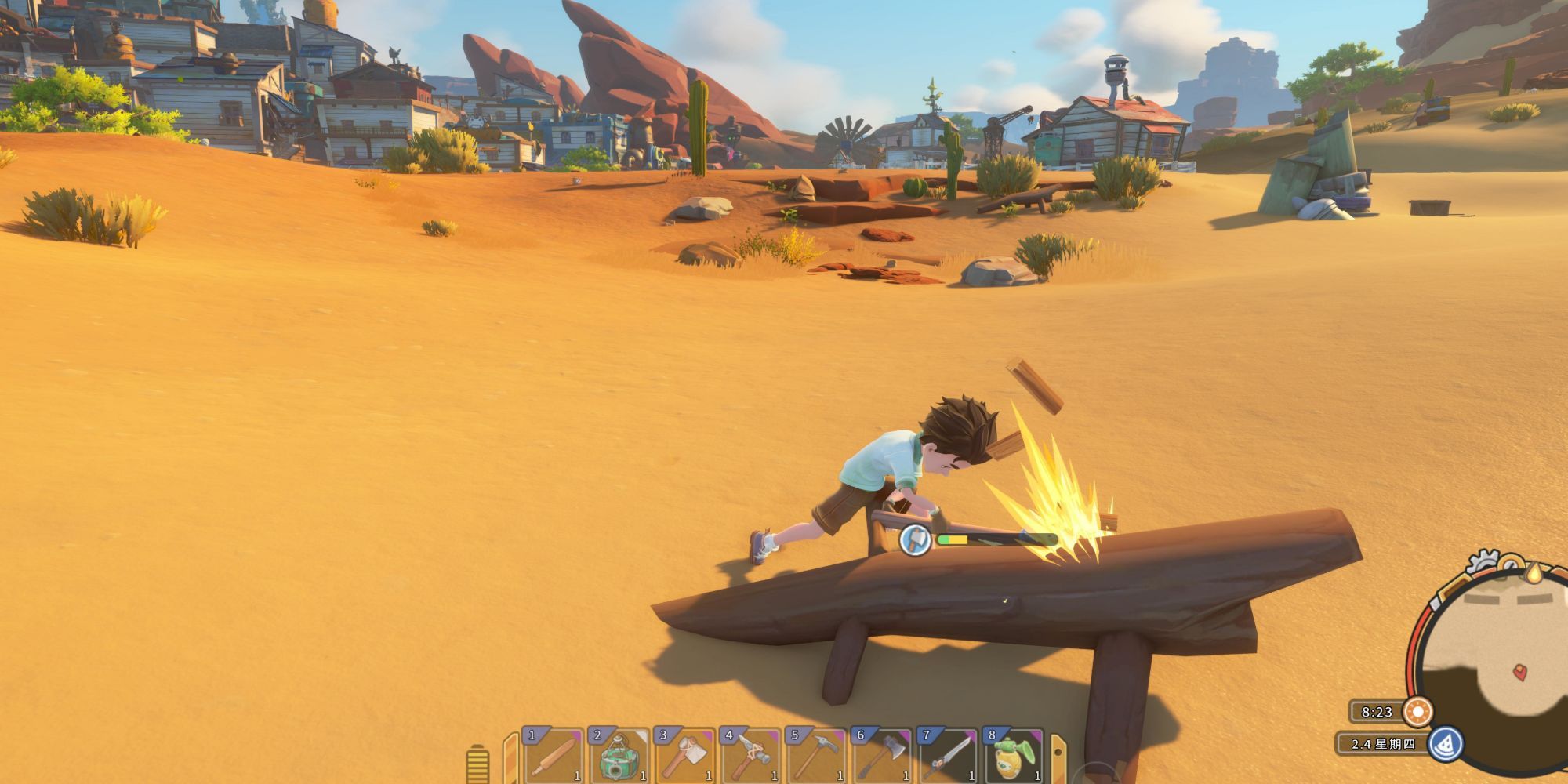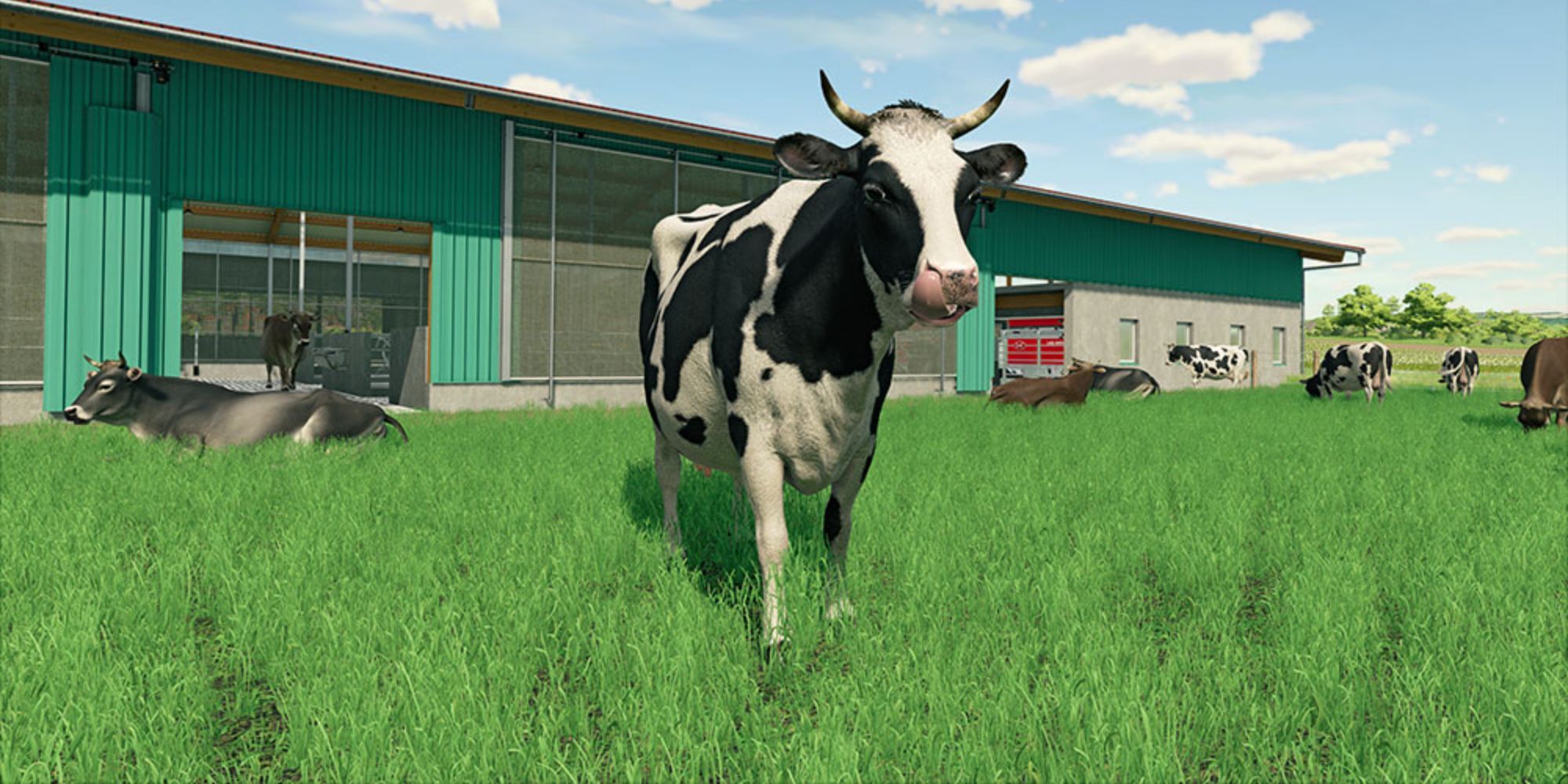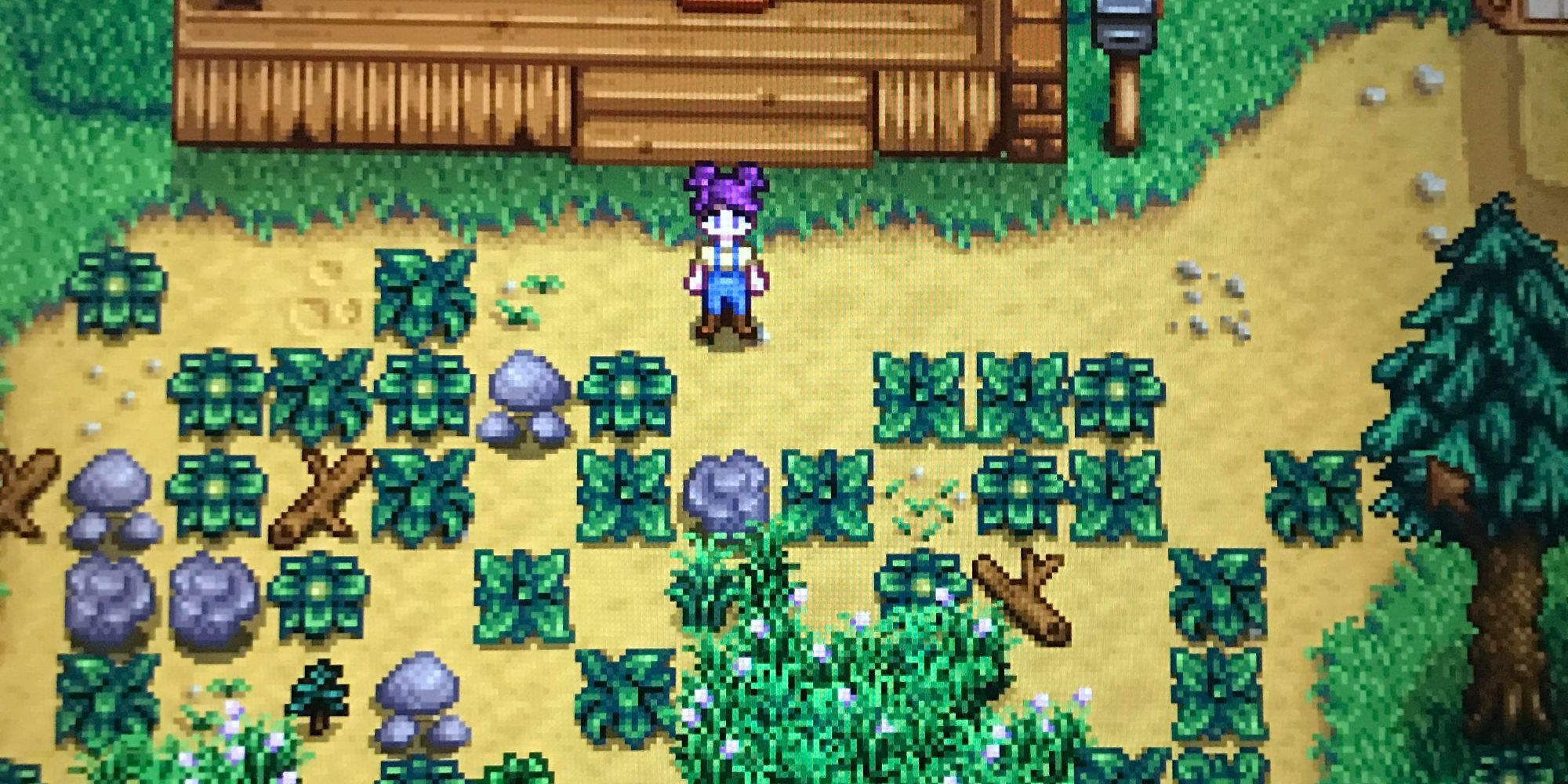Simulation games must walk a tightrope between being so realistic they're burdensome and so cartoonish they no longer simulate anything. Many players will overlook all manner of inaccuracies or omissions if they serve the interest of entertainment, but sometimes these inaccuracies and omissions undercut the very fiction they aim to serve.
Like every genre, farm simulations have accrued a series of tropes over the years, quirks of storytelling and mechanics that were established in the genre's infancy and never shaken, even when they do more harm than good. Some are actively detrimental to the player, hampering fun, while others are just weird, eliciting baffled head-scratching from players.
10 Merchants With One Customer
In many games, despite the player being the only farmer, some NPC's sole profession will be selling seeds, livestock, and other farming goods. Considering these merchants have their stock ready as soon as the player arrives, one can only conclude that they have somehow managed to pay the upkeep for their merchandise despite their utter lack of income.
Earning a living in a town with no farmers (before the player's arrival) should be impossible, yet somehow these miracle merchants persevere. Indeed, even when players choose to earn a living through fishing, mining, or some other means, these extraneous seed-peddlers carry on. A more logical economy is one issue that games like Stardew Valley may wish to add.
9 Simple Dating
As the poets insist, romance is a thorny affair. Yet in many farming sims, wooing a suitor is simply a matter of finding out whether they prefer chocolates or fossils, plying them with their favorite gift day after day like a maniacal chocolatier, and stalking them to learn their social calendar so that the player can badger them for a new cutscene.
Stardew Valley is guilty of this trope, as are a number of similarly excellent games. A steady rollout of hearts removes all ambiguity as to one's romantic progress, and when that fails, players can carry out consequence-free home invasions to rifle through their partner's diary in search of clues.
8 Consequence-Free Bankruptcy
Sometimes chickens stop laying, cows stop giving milk, and grapes wither on the vine. In life, bankruptcy means a host of terrible things, one being the loss of property and possessions. In the worst sims as well as many of the best, broke farmers do just fine.
There might be fewer animals in the barn, but no angry creditors ever come knocking, demanding to see the proceeds of the farmer's barren dirt plot. The average player probably doesn't want Stardew Valley to be as harsh as Dark Souls, but the broken logic of consequence-free bankruptcy is too great to dismiss.
7 Iron-Clad Schedules
Some games do a better job than others at hiding the algorithms which determine when an NPC opens their shop, visits a relative's grave, or takes the afternoon off for a bit of yoga. In Harvest Moon, its spiritual successors, and other farming sims, schedules tend to be rigid, with characters in the exact same places at the exact same times each day.
This rigidity allows players to plan their shopping around the availability of merchants and their date nights around the availability of their dates. Unfortunately, this reliance on routine also turns the community into one big clockwork puppet show if the player looks too closely at these pre-ordained motions.
6 Products Always Sell
Anyone who has ever passed a deformed pumpkin at a roadside stand knows that not everything grown will sell. In farming simulators, crops might come in varying qualities, with prized "starred" crops selling for more, but the notion of customers who simply will not buy--whether due to a low-quality product or inscrutable taste--isn't addressed. Today the player dumps their daily haul of eggs and produce into the sell bin, and tomorrow there's a fat check waiting.
Products not selling is a harsh reality that was understandably abandoned in the name of fun, to keep players who sweated for days in their virtual fields from feeling unduly robbed.
5 Perfect-Attendance Weddings
To most, weddings are a blissful occasion in which friends, loved ones, and pushy acquaintances gather to celebrate unity and love. Yet in many farming simulators, weddings unite literally everyone in town, including those that hate one another, the farmer's rivals and enemies, and weird introverts who otherwise never leave their wizard's tower or Frankensteinian lab yet will drop everything to socialize over wedding cake.
Community events are the only opportunity to draw together the town's many NPCs, giving each the opportunity to show off their personality, but even by small-town standards, perfect attendance for a wedding is grossly unrealistic.
4 Watering Cans
Watering a house plant with a watering can is sensible. Watering multiple fields with a watering can is masochistic. Some games start the player with a can but allow an eventual upgrade to automatic sprinklers, but in Harvest Moon and others, the can is the be-all-end-all of agrarian life.
While tips for beginners may help in Farming Simulator 2019, no amount of good advice will save Harvest Moon farmers from hours of repetitive pouring. While titles like SunnySide have realized the foolishness of this endeavor and corrected it by supplying players with a hose, others commit this cardinal farming sim sin to this day.
3 Super Farmers
Dawn breaks. The farmer rises and trots out into their field, ready to clear the land for planting. Their weapon of choice? A pickax for busting pig-sized boulders, and an ax for felling 30 ft. trees. If most farming simulators are to be believed, a single person can clear a large field of trees, boulders, and weeds within weeks using only hand tools.
This is one area in which even the best farming simulators leave room for improvement. A more realistic sim that required heavy machinery (which the character could never afford) or that extended the required clearing time by months would not be fun, but that doesn't excuse the immense logical gap.
2 First-Year Profits
Most farms are a family business, with farming being a generational affair, each child building on the hard work and ingenuity of their predecessors to eke out a better livelihood from the same earth. Starting a farm from nothing or next to nothing is time-consuming, costly, and hard.
Yet by the end of the first year in farming sims, many see bank accounts well into the green, having turned the petty cash, rusted tools, and half-dozen tomato seeds they started with into a booming business. Virtual farming shouldn't be as difficult as real farming, but neither should it gloss over or cheapen the investment that real farming takes.
1 Dead Grandfathers
Farms cannot be purchased, only inherited from dead grandfathers. At least, that's the lesson taught to players by a generation of farming sims. The trope, established early on by genre classics such as Harvest Moon 64, continues to crop up even in new, critically praised titles such as Stardew Valley and Farmer's Dynasty.
Even the best farming games perpetuate this trope. This flaw is the genre's most egregious because neither mechanical convenience nor narrative satisfaction requires it. Grandchildren inherit farms they could as easily have purchased, or inherited from living grandparents too old to keep up with the fields. The grandfathers don't have to die, and yet die they do.

